GWE Forum Roundtable 2: Development partners’ dialogue: How to enhance the lasting impact of development projects?
Current environments present a clear need for coordination, not only within the project stakeholders but also amongst the development partners. Six programme managers of the development agencies sat down together, to share their experience and exchange ideas. The discussion was based on the following questions:
- What are the notable changes, or desirable changes yet to happen, in the design and implementation of development projects along with the rapid technical development?
- Facing societal changes including the shifts in global weather enterprise: How the emerging private sector can contribute to the national/regional development projects? What are the examples for emerging opportunities and blockers for private sector engagement in the project design/ and implementation?
- What types of different approaches can be employed in the ongoing or future development projects, to ensure fuller engagement of all sector players? And, what would be the incentives therein for development partners and beneficiary countries?
Watch the video, and,
Many modernization projects are undertaken in low- and mid-income countries, to improve national and regional capacities to produce and deliver weather, climate, and hydrological information. Development partners marked significant success, and gained considerable knowledge over years, to enhance the public infrastructure for monitoring, prediction, and knowledge production.
In the meantime, we have witnessed rapid changes in the scene. Notably, technological advances and open data policies have significantly enlarged the role of the private sector, calling for the optimal mix of public-private collaboration that would improve the provision of public services. Sustainability continues to be a great challenge for those projects, bearing the questions as to “How to ensure lasting impact of the development projects?”, and, “How to maximize their benefit for the whole country or region?”
Key messages include: The international development projects have gained both scale and scope in the hydromet domain. While the early warning and climate services comprise the principal part of hydromet projects – from closing physical gaps to providing improved services to society – projects of various social sectors have increasingly included hydromet components that can provide usable and reliable weather, water, and climate information. More and more projects encourage open and constructive participation of private, academic, and other sectors together with the public sector – as providers, to ensure tangible outcomes in defined time; also, as users, to enlarge the value and use of hydromet services. Further opportunities are emerging for the private sector to participate in development activities. It is in line with an increased focus within the project design on service capacity, and also with the desire to engage innovative technologies for implementation . More work is to be done, however, to ensure engagement of all sectors to their full capacities, such as; framing hydromet services as an integrated component of major sectors' development projects (e.g. agriculture, transportation), re-considering financial mechanisms, and reviewing national policy framework on the roles of private sector along with the public sector. The benefits and drawbacks of different approaches should be clearly articulated for all stakeholders of the development projects. Fragmented project implementation hinders the sustainability of the investment. For example, aligning goals and nourishing each other's outcomes among hydromet development, adaptation projects and policy framework development will help to ensure lasting impact and benefits of the investment. In the same context, coordination and strategic alignment among the development agencies will amplify the impact of various development projects.
Panelists:
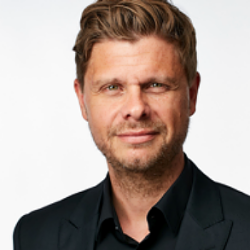
Benjamin Hodick is the Head of the GIZ global project “Enhancing Climate Services for Infrastructure Investments (CSI)”, commissioned by the German Federal Ministry for the Environment, Nature Conservation and Nuclear Safety (BMU). The global project closely cooperates with multiple stakeholders from Brazil, Costa Rica, Vietnam, and the Nile Basin Initiative (NBI), based in Uganda. He has an academic background in Public Policy, studied in Potsdam, Germany, and at the University of California in Los Angeles. After his graduation, he joined the German Development Institute, worked for consulting companies and GIZ in the field of international cooperation, mainly in Sub-Sahara Africa and with long-term assignments in South East Asia. Benjamin has more than 17 years of work experience and has ever since focused on questions related to public service delivery in the field of environment and climate change adaptation.

Benjamin Larroquette is a Regional Technical Advisor for the UNDP Nature, Climate and Energy team, focussing on climate change adaptation. I help countries access vertical funds like GCF and GEF and I have been working among other things on strengthening climate information and early warning systems in countries in Africa.
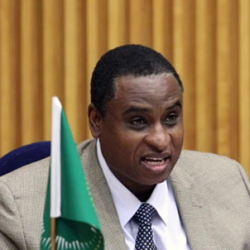
James Kinyangi is the Coordinator of ClimDev Africa Special Fund at the African Development Bank. He leads the development of the Funds’ investments that enhance the capacity to deliver Hydromet Services in Africa. Prior to this appointment, James was the Chief Climate and Policy Officer of the Fund. Before joining the Bank, he served as the Program Leader of the CGIAR Research Program on Climate Change, Agriculture, and Food Security in East Africa. He was the FAO-UN Advisor of the EU Supported Program on Agricultural Development in Swaziland.
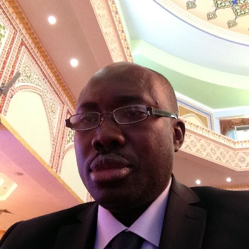
Joseph Daniel Intsiful is the Senior Climate and Early Warning Systems Specialist at the GCF. He holds a PhD in Mathematics and Natural Sciences from the University of Bonn. He manages over a $1 billion portfolio of GCF adaptation projects and has over 20 years of experience in supporting developing countries to implement climate change and development projects in over 100 developing countries globally. Prior to joining the GCF, Joseph was the Senior Climate Science Expert at the UN Economic Commission for Africa, as the Climate Change Impacts, Data Collection and Analysis Expert of the UNDP African Adaptation Programme and the Liaison and Training Manager of the UK Met Office Hadley Centre’s regional climate model PRECIS.
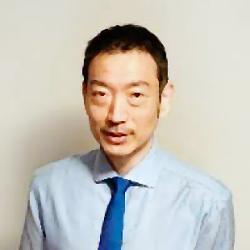
Makoto Suwa is a Senior Disaster Risk Management Specialist at the World Bank. He leads and supports a wide range of World Bank activities and projects that aim to strengthen weather, climate, and hydrological services in Africa. Prior to joining the World Bank, Makoto worked for the World Meteorological Organization, at both its headquarters in Geneva and its Regional Office for Eastern and Southern Africa in Nairobi. He also taught at Kigali Institute of Science and Technology and Lycée de Kigali in Rwanda, and briefly worked for the Japan International Cooperation Agency’s Office for Climate Change in Tokyo. Makoto holds a Ph.D. in climate science from Princeton University and a master of environmental management degree from Duke University.
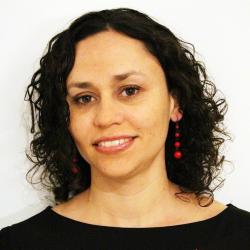
Valentina Villoria is a programme manager with more than 12 years of experience in designing and managing climate change projects/programmes of more than 100 M EUR for the European Commission’s DG International Partnerships (INTPA, formerly known as DG DEVCO) and other international financing institutions and agencies. In the last 5 years at DG INTPA, she has been responsible for conceptualisation, negotiation, coordination, and management of the ClimSA programme which aims at strengthening the capacity of Sub-Sahara African, Caribbean, and Pacific regional climate centres to generate and deliver climate and weather services. Valentina has a master degree in Water and Coastal Management from the Universidad de Cadiz, Spain and Universidade do Algarve, Portugal for which she received an Erasmus Mundus scholarship. She also has a bachelor’s degree in geophysical engineering from the Universidad Simon Bolivar, Caracas, Venezuela.
Moderator:
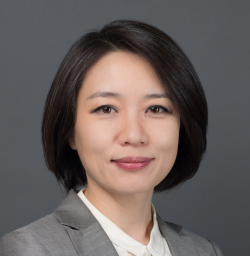
Boram Lee is a senior consultant to the Hydromet Program of the World Bank Global Facility for Disaster Reduction and Recovery (GFDRR). Her work includes analytical and technical advice on innovative approaches to improve the capability of the National Meteorological and Hydrological Services, and on the public-private partnership. Throughout her career, Boram has been involved in the global coordination of weather/climate/ocean research, as well as in the decision-making support for intergovernmental processes and inter-agency collaborations. Boram has worked for over 20 years at the World Meteorological Organization (WMO), the Intergovernmental Oceanographic Commission (IOC) of UNESCO, and Korea Meteorological Administration. Boram holds a PhD in climatology from the Université Paris VI, France, MSc and BSc degrees in Atmospheric Science from the Seoul National University in Korea, and an MBA from École Polytechnique Fédérale de Lausanne.
